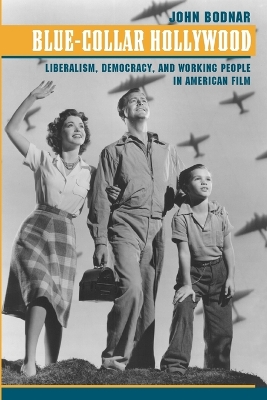From Tom Joad to Norma Rae to Spike Lee's Mookie in Do the Right Thing, Hollywood has regularly dramatized the lives and struggles of working people in America. Ranging from idealistic to hopeless, from sympathetic to condescending, these portrayals confronted audiences with the vital economic, social, and political issues of their times while providing a diversion-sometimes entertaining, sometimes provocative-from the realities of their own lives. In Blue-Collar Hollywood, John Bodnar examines the ways in which popular American films made between the 1930s and the 1980s depicted working-class characters, comparing these cinematic representations with the aspirations of ordinary Americans and the promises made to them by the country's political elites.
Based on close and imaginative viewings of dozens of films from every genre-among them Public Enemy, Black Fury, Baby Face, The Grapes of Wrath, It's a Wonderful Life, I Married a Communist, A Streetcar Named Desire, Peyton Place, Taxi Driver, Raging Bull, Coal Miner's Daughter, and Boyz N the Hood-this book explores such topics as the role of censorship, attitudes toward labor unions and worker militancy, racism, the place of women in the workforce and society, communism and the Hollywood blacklist, and faith in liberal democracy. Whether made during the Great Depression, World War II, the Cold War, or the Vietnam era, the majority of films about ordinary working Americans, Bodnar finds, avoided endorsing specific political programs, radical economic reform, or overtly reactionary positions. Instead, these movies were infused with the same current of liberalism and popular notion of democracy that flow through the American imagination.
- ISBN10 080188537X
- ISBN13 9780801885372
- Publish Date 21 November 2006 (first published 8 July 2003)
- Publish Status Active
- Publish Country US
- Imprint Johns Hopkins University Press
- Format Paperback (US Trade)
- Pages 328
- Language English
- URL https://press.jhu.edu/books/title/1232/blue-collar-hollywood
